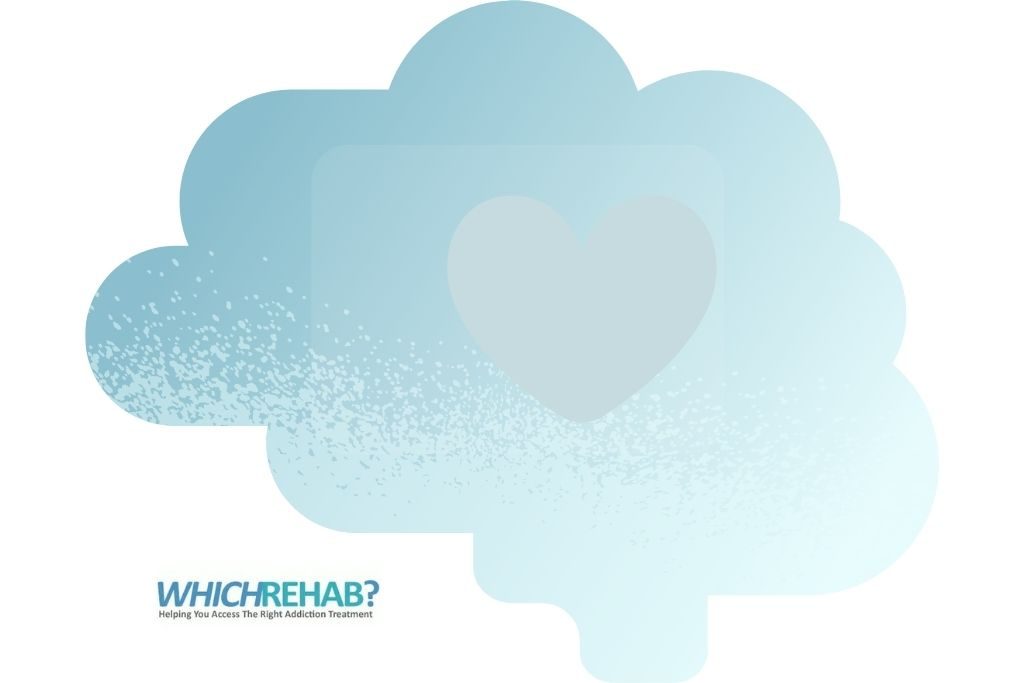When exploring treatment options for addiction, whether for yourself or a loved one, you may have come across Dialectical Behaviour Therapy or DBT.
But what is DBT and how can it help you on your journey to recovery?
Join us as we explore what DBT is and how it can benefit people struggling with emotional dysregulation as a result of substance abuse.
What is Dialectical Behaviour Therapy (DBT)?
Dialectical Behaviour Therapy (DBT) is a type of therapy designed to help individuals who struggle with intense emotions and have difficulty regulating them. DBT is often used to treat mental health conditions such as borderline personality disorder, post-traumatic stress disorder, bipolar disorder, and substance use disorder.
The therapy focuses on teaching individuals skills to help them manage their emotions and improve their quality of life. These skills include emotion regulation, mindfulness, interpersonal effectiveness, and distress tolerance.
DBT typically involves both individual therapy sessions and group skills training. It is considered an effective treatment option for those who experience emotional dysregulation and engage in harmful behaviours.
By learning and applying DBT skills, individuals can develop healthier coping mechanisms and improve their overall well-being.

Benefits of DBT
Dialectical Behaviour Therapy (DBT) is an evidence-based treatment that offers immense benefits for individuals struggling with intense emotions and maladaptive behaviours. By promoting acceptance and positive changes, DBT equips individuals with the necessary skills to cope with their emotions, replace negative thoughts with healthier alternatives, and identify and address harmful behaviours.
Studies have shown that dialectical behaviour therapy can be effective in reducing suicidal behaviour in adults. Research has indicated that DBT is effective in reducing self-harming behaviour.
One of the primary benefits of DBT is its emphasis on acceptance. It helps individuals come to terms with their emotions and experiences, fostering a non-judgmental attitude towards themselves. This acceptance lays the foundation for positive changes to take place.
DBT also equips individuals with effective strategies to cope with intense emotions. It teaches emotion regulation skills, enabling individuals to manage their emotions more effectively and reduce impulsive actions or self-destructive behaviours.
Another benefit of DBT is its focus on replacing negative thoughts with positive and realistic ones. Over time, individuals learn to challenge and change their negative thinking patterns, leading to improved mental well-being.
DBT helps individuals identify harmful behaviours and provides them with tools to address and modify these behaviours. It also helps individuals develop better communication skills, enhancing their relationships and reducing conflicts.
What’s the difference between CBT and DBT?
While CBT (Cognitive Behavioural Therapy) and DBT (Dialectical Behaviour Therapy) are both forms of therapy that focus on improving mental health conditions and promoting positive change, there are key differences between the two.
While CBT primarily concentrates on changing unhelpful thoughts and behaviours, DBT takes a more comprehensive approach. DBT recognises that individuals with intense emotions and emotional dysregulation require both acceptance and change simultaneously. This means that, alongside working to modify negative thoughts and behaviours, DBT also emphasises accepting and validating the person’s emotions and experiences.
Another notable difference is that DBT often includes more group work than CBT. In addition to individual therapy sessions, DBT incorporates group therapy sessions where individuals can learn from and support one another. This group dynamic encourages a sense of community and provides opportunities for practising skills in real-life situations.
While CBT primarily focuses on changing thoughts and behaviours, DBT combines acceptance and change simultaneously. With its emphasis on group work and the need for active effort, DBT provides individuals with a powerful tool for managing intense emotions and building healthier relationships.
It’s exceptionally hard to overcome addiction without therapy, so treatments like CBT and DBT are vital tools to help you recover.

History and Development of DBT
Developed by psychologist Marsha Linehan in the late 1980s, DBT was originally intended to treat individuals with borderline personality disorder who experienced strong emotions and engaged in self-harming behaviours.
However, DBT soon proved to be valuable in addressing a range of other mental health issues, such as post-traumatic stress disorder (PTSD), bipolar disorder, and substance abuse disorders.
Over the years, DBT has gained recognition and popularity for its focus on emotion regulation and its ability to enhance the quality of life for those suffering from emotional dysregulation and or mental illness. By combining elements of cognitive-behavioural therapy and mindfulness skills, DBT has become a widely accepted and evidence-based treatment modality.
Marsha Linehan’s creation has significantly impacted the field of mental health, particularly in providing a framework for addressing intense emotions and promoting behavioural change.
Components of Dialectical Behaviour Therapy
DBT consists of various components, including:
- Core beliefs & principles
- Skill training
- Mindfulness practices
- Individual therapy sessions
- Group therapy sessions
- Phone Coaching
Each component serves a specific purpose in supporting the individual’s journey towards emotional stability and personal growth.
Core Beliefs and Principles that Guide DBT Practice
At the heart of Dialectical Behaviour Therapy practice lies a set of core beliefs and principles that guide the treatment of mental health conditions. DBT takes a holistic approach to therapy, emphasising the importance of helping individuals regulate intense emotions and develop effective skills to improve their quality of life.
DBT is grounded in the belief that people with mental health conditions are doing their best, and that they need specific and targeted support to learn and develop new skills. This acceptance of an individual’s current experience, while also emphasising the need for change, sets the foundation for the therapeutic approach used in DBT.
Dialectics emphasises the integration of seemingly contradictory beliefs or perspectives, allow for a balanced and comprehensive treatment approach. DBT recognises that emotions, thoughts, and behaviours are interconnected, and aims to address these interrelationships in therapy.
Another key principle is the importance of skills training. DBT provides individuals with the tools and strategies they need to regulate and manage their emotions effectively. By learning skills like mindfulness, emotion regulation, and interpersonal effectiveness, individuals can better navigate the challenges of daily life and improve their overall well-being.
By incorporating these core beliefs and principles into the therapeutic approach, DBT promotes emotion regulation and helps individuals with mental health conditions develop more adaptive coping strategies. This, in turn, can lead to improved quality of life and overall mental well-being.
Skills Training Component of DBT
The Skills Training Component of DBT is a core aspect of this therapy, providing individuals with specific tools and techniques to manage their emotions and improve their overall quality of life.
The Skills Training Component consists of five modules:
- Mindfulness skills
- Emotion regulation skills
- Interpersonal effectiveness skills
- Distress tolerance skills
- Walking the middle path skill
In each module, individuals learn practical strategies to regulate their emotions, improve their interpersonal relationships, and cope with distressing situations.
DBT skills training is typically conducted in a group setting, where trained facilitators teach the skills in a classroom-like environment. Group members are encouraged to share their experiences and support one another throughout the process. Facilitators also assign tasks for practice between sessions to reinforce the learning and help individuals apply the skills in their day-to-day lives.
By participating in DBT skills training, individuals gain the necessary tools to effectively manage their emotional dysregulation and behavioural patterns. This structured program offers a comprehensive approach to addressing the complex needs of individuals with mental health conditions, providing them with practical skills to enhance their emotional well-being and overall functioning.
Mindfulness Practices Used in DBT Treatment Programs
Mindfulness practices are an essential component of Dialectical Behaviour Therapy treatment programs. These practices involve bringing one’s attention to the present moment and acknowledging and accepting one’s thoughts, feelings, and bodily sensations without judgment.
In DBT, mindfulness is taught as a foundational skill to help individuals accept and tolerate intense emotions. Through mindfulness, patients learn to observe their thoughts and emotions without becoming overwhelmed by them. This allows them to develop a sense of detachment from their emotions, reducing impulsive reactions and providing a greater sense of control.
The principle of acceptance is a key aspect of mindfulness in DBT. By accepting their present experience, individuals can slow down and focus on the positives rather than getting caught up in negative emotions. This helps them shift their attention towards solutions and cope effectively with emotional challenges.
The benefits of mindfulness practices in DBT treatment programs are significant. Patients develop emotion regulation skills, gain a greater understanding of their internal experiences, and improve their overall well-being. By being present in the moment and accepting their thoughts and feelings without judgment, patients can cultivate a sense of calm and self-awareness that enhances their ability to navigate daily life.
DBT treatment programs recognise the importance of mindfulness in managing mental health conditions, enabling individuals to lead more fulfilling lives and experience an improved quality of life.

Individual Therapy Sessions in a DBT Program
Individual therapy sessions are an integral part of dialectical behaviour therapy (DBT) programs. These sessions, which run concurrently with group therapy sessions, provide personalised attention to individuals with intense emotions, such as those with borderline personality disorder and other mental health conditions.
The main goal of individual therapy sessions in a DBT program is to hone in on the specific needs and challenges faced by each individual. A mental health professional guides the individual through the stages of treatment, helping them develop effective skills for emotion regulation and improving their quality of life.
A key component of individual therapy sessions is the use of a diary. Keeping a diary allows individuals to track their emotions and actions, providing valuable insights into their patterns of behaviour. By identifying triggers and developing strategies for managing negative emotions, individuals can take proactive steps towards emotional regulation and self-improvement.
Individual therapy sessions typically occur on a weekly basis, providing a consistent and supportive space for individuals to explore their thoughts and emotions. The therapy sessions are tailored to the individual’s needs and may include techniques from cognitive behaviour therapies, mindfulness skills, and dialectical behaviour therapy skills.
By closely working with a mental health professional in individual therapy sessions, individuals can gain a deeper understanding of their emotional dysregulation and learn effective ways to navigate their challenges. This type of therapy has proven to be an effective treatment option for individuals with complex mental health conditions, including borderline personality disorder, bipolar disorder, and post-traumatic stress disorder.

Group Therapy Sessions in a Comprehensive DBT Program
Group therapy sessions play a crucial role in a comprehensive DBT program as they complement individual therapy sessions and contribute to the overall treatment of mental health conditions. These sessions provide a supportive and validating environment where individuals can connect with others who are facing similar challenges.
One of the key benefits of group therapy in DBT is that it fosters interpersonal skills. Participants learn effective ways to communicate, resolve conflicts, and establish and maintain healthy relationships. This is particularly important for individuals with mental health conditions characterised by intense emotions and difficulties in navigating interpersonal relationships.
Group therapy sessions also provide support and validation. Participants can share their experiences, struggles, and achievements with others who understand and empathise. This sense of validation and belonging can help reduce feelings of isolation and increase feelings of support and understanding.
What’s more, group therapy sessions offer an opportunity to practice the DBT skills learned in individual sessions. Participants can engage in role plays, share success stories, and receive feedback from their peers and the facilitator. This active practice reinforces the DBT skills, helping individuals develop effective coping mechanisms and emotional regulation.

Phone Coaching Used in Dialectical Behaviour Therapy Programs
Phone coaching provides individuals with in-the-moment support during difficult situations.
Therapists who specialise in DBT are available by phone to offer guidance and support outside of the traditional therapy sessions. This means that individuals can reach out to their therapist when they are facing emotional dysregulation or other challenging experiences. Having access to phone coaching can be immensely beneficial as it allows individuals to receive immediate assistance and learn how to effectively use healthy coping techniques.
There are many benefits of phone coaching in DBT programs. Firstly, it provides individuals with a lifeline of support during times when intense emotions or harmful behaviours may arise. By having a therapist available by phone, individuals can receive guidance on how to handle these situations in a safe and healthy manner.
Phone coaching also enhances the continuity of care by extending the therapeutic relationship beyond the scheduled therapy session. This ensures that individuals are supported throughout their day-to-day lives, even when they are not physically in therapy. It also helps individuals generalise the skills they learn in therapy to real-life situations, improving their overall quality of life.
How to get help
If you are, or someone you know and love is struggling with addiction and don’t know where to turn, seeking help is the first step in your recovery journey.
If you’re ready to take control of your addiction and start your path to a healthier life, our team at Which Rehab is always here to provide free and impartial rehab advice and help you find the right rehab centre for you. Whatever your treatment plan is, whether it includes Dialectical Behaviour Therapy or not, will be tailored to your specific needs.
Get in touch today to take back control of your life. If you’re not quite ready to talk, check out our other blogs like ‘How much does Rehab Cost?‘ and ‘Can you stop doing drugs without rehab?‘







